Explainer Video
This explainer video describes regenerative agriculture, and the benefits of this conservation and agricultural strategy to the environment and human health.
Related Podcasts
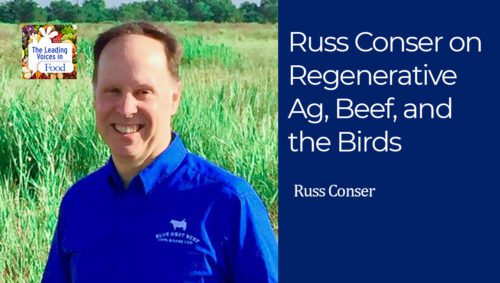
E140: Russ Conser on Regenerative Ag, Beef, and the Birds
Tuesday, September 14, 2021
How does someone who spent 30 years at Shell, the massive energy company, and leading its GameChanger innovation program turn into a leader for regenerative agriculture? Today, we're talking with Russ Conser, the CEO of Blue Nest Beef. He's an expert on disruptive innovation, scaling up ideas, and has a passion for soil and ecosystem science.
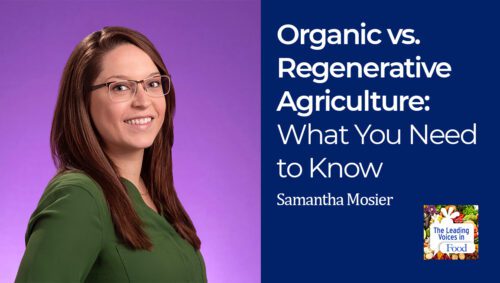
E146: Organic Vs Regenerative Agriculture – What You Need to Know
Tuesday, October 19, 2021
So what does it mean for something to be considered organic, or to be considered regenerative or sustainably produced? Defining these concepts in agriculture production and in food labeling is complicated, but very important. So government defines and oversees certain terms, while other terms are generally overseen by producers, by industry experts, or even by non-governmental organizations. The politics and governance structures of labeling can be very important in how sustainably produced goods are made and marketed. In today's podcast, we'll speak with Dr. Samantha Mosier, political scientist on the faculty of East Carolina University, as part of our Regenerative Agriculture podcast series.

E147: Farmer-scientist Measures the Real Benefits of Regenerative Agriculture
Monday, November 1, 2021
Today's podcast is part of our Regenerative Agriculture series of podcasts. We're talking with agroecologist Dr. Jonathan Lundgren, CEO for Blue Dasher Farm in South Dakota, and also founder and director of the ECDYSIS Foundation. Dr. Lundgren connects the worlds of science and agriculture, and his working regenerative farm is also a scientific research hub.
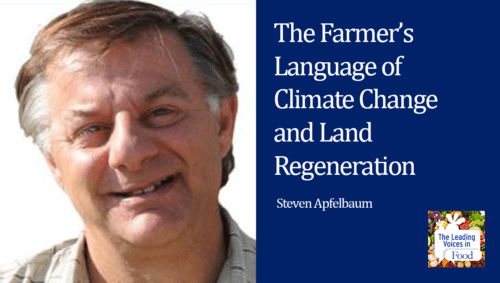
E153: The Farmer’s Language of Climate Change and Land Regeneration
Thursday, January 20, 2022
Today, we're talking with ecologist, Steven Apfelbaum, author of "Nature's Second Chance", a book that was named a top 10 environmental book in 2009, and was one of the top 10 books for understanding what you can do about climate change. So Steve is going to talk about his work to improve soil health, a really amazingly interesting and important topic, but also how grazing and how farming can be improved, and how to restore land using nature's own processes. He'll also speak about how such work minimizes climate impact, while also reducing flooding, increasing food quality and nutrition, and improving land health. Steven Apfelbaum is a senior ecologist and science advisor at RES, Resource Environmental Solutions, and Founder and Chairman of Applied Ecological Services. This podcast is part of our Regenerative Agriculture series.

E167: Muller Shepherding Regenerative and Restorative Agricultural Practices
Thursday, May 19, 2022
Today's podcast is part of our Regenerative Agriculture series. I'm speaking with Mark Muller, Executive Director of the Regenerative Agriculture Foundation (RAF). The RAF seeks to foster the economic policy and knowledge conditions that support land stewardship, climate solutions, racial equity, adjust economy, and thriving rural communities.
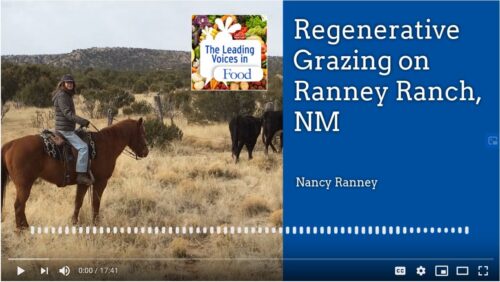
E28: Nancy Ranney on Regenerative Grazing in New Mexico
Friday, April 26, 2019
If you're like me, you've read or heard of reports and news accounts talking about the negative consequences of producing beef, with greenhouse gas emissions, heavy water use and the welfare of the animals leading the list of concerns. But just when it seems like producing and consuming less beef might be a health and environmental bonanza, along comes an alternative way of doing things. One that uses a fundamentally different approach to things.
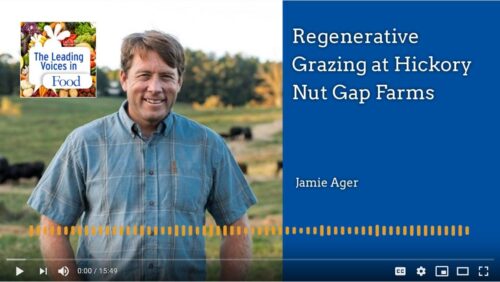
E47: Hickory Nut Gap Farm’s Jamie Ager on Regenerative Grazing
Sunday, September 22, 2019
Jamie and Amy Ager, and their extended family, co-own the Hickory Nut Gap Farm business, and the brand Hickory Nut Gap Meats. Both are graduates of Warren Wilson College, and the couple took over running the farm in 2006 with a vision to achieve environmental sustainability through regenerative grazing. What began as a dream is now a thriving business built on relationships, environmental stewardship, and no small amount of courage.

E55: Allan Savory on Regenerative Agriculture
Tuesday, October 15, 2019
Regenerative agriculture is a highly visible, interesting and promising approach to raising animals. The person credited for conceiving this approach, testing it and helping it spread around the world is our guest today, Allan Savory.
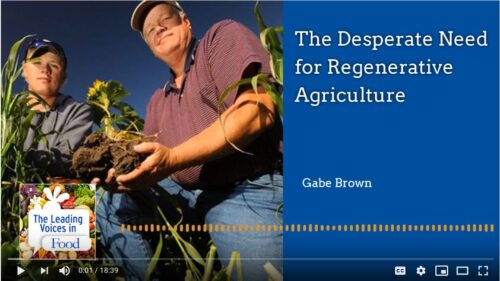
E69: Gabe Brown on the Desperate Need for Regenerative Agriculture
Thursday, January 9, 2020
Imagine a farm doing such creative work that more than 2,000 people come to visit each year from all 50 states and more than 20 countries outside the US. What do you think such a farm might be doing? Our guest Gabe Brown can explain.
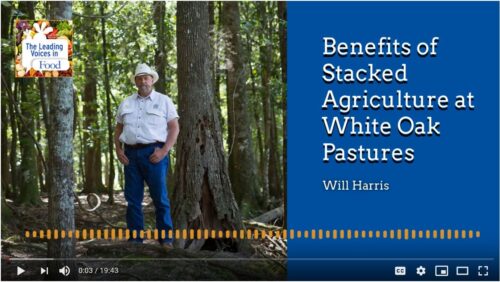
E72: Will Harris on White Oak Pastures Success with Regenerative Ag
Friday, January 10, 2020
Imagine being a fourth-generation owner of a business and deciding to completely change things to upend tried-and-traditional ways of doing things in favor of something brand new, untraditional, and potentially pretty risky. Such is the story of our guest today, farmer Will Harris.

E82: Rediscovering Navajo Indigenous Agricultural Wisdom
Tuesday, July 28, 2020
There's a great deal to learn from the deep connections between regenerative agriculture and the farming traditions of First Nations people. My guest today is James Skeet, a member of the Navajo Nation and the founder of Spirit Farm in New Mexico, a demonstration farm that draws both Native Americans and others to learn more about issues like composting and regenerative farming techniques.
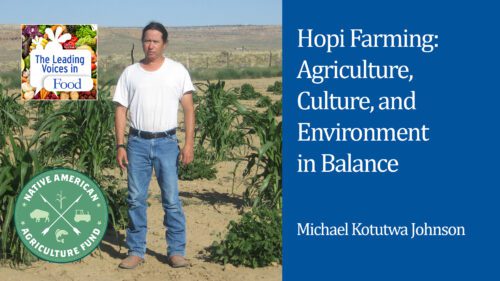
E83: Hopi Farming – Agriculture, Culture, and Environment in Balance
Tuesday, July 28, 2020
Today, we're digging in to the little known origins of regenerative agriculture, a conservation approach to farming and raising animals that focuses on soil health, biodiversity, improving the water cycle, and resilience to climate change. My guest today is Dr. Michael Kotutwa Johnson, a 450th generation Hopi farmer in the dry lands of Arizona and a research associate with the Native American Agriculture Fund.
